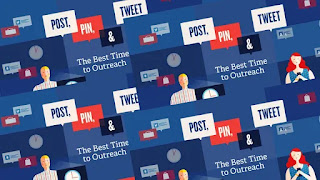Social media has become the main source of news online with more with more than 2.4 billion internet users, nearly 64.5 percent receive breaking news from Facebook, Twitter, YouTube, Snapchat and Instagram instead of traditional media. But, can we trust everything what says in social media? "There are many "fake news" websites that compete for attention with sensational headlines and ridiculous storylines that tend to get shared more often due to the lack of readers fact checking or reading more than the headline. That means that authentic content is hard to come by now. In fact, fake news is actually more likely to spread than the truth," said Martin, Nicole. I agree with it. It seems like we can't trust social media. Most of the time they make up the news. That way more people want to read the news and the website gets more views. News happens fast now. Today’s story will be tomorrow’s forgotten story. It is easy to miss things now because of how quick stories can get turned around and shared. Every day we have something new to talk about but it is worth always checking sources and not taking headlines as truth. With social media as our new news managers, it is up to us to be the new fact checkers for media.
A new Pew Research Center analysis of surveys conducted between October 2019 and June 2020 finds that those who rely most on social media for political news stand apart from other news consumers in a number of ways. These U.S. adults, for instance, tend to be less likely than other news consumers to closely follow major news stories, such as the cornavirus outbreak and the 2020 presidential election. And, perhaps tied to that, this group also tends to be less knowledgeable about these topics. What about the fact that social media zombifying the youth of this generation? A lot of young people can spend hours of scrolling Instagram, Twitter or even Tik Tok and they can't stop. I don't know how many times I saw group of people hanging out and instead of talking they are just scrolling through their twitter feeds, sending posts to people no more than 2 feet away from them. Are they that deprived of thought that you can’t come up with anything to talk about? The thought of doing that is just absurd to me. Whenever I see it I just think about how it is turning youth into zombies. Don't let social media zo zombify you! Stop scrolling while you can!
A new Pew Research Center analysis of surveys conducted between October 2019 and June 2020 finds that those who rely most on social media for political news stand apart from other news consumers in a number of ways. These U.S. adults, for instance, tend to be less likely than other news consumers to closely follow major news stories, such as the cornavirus outbreak and the 2020 presidential election. And, perhaps tied to that, this group also tends to be less knowledgeable about these topics. What about the fact that social media zombifying the youth of this generation? A lot of young people can spend hours of scrolling Instagram, Twitter or even Tik Tok and they can't stop. I don't know how many times I saw group of people hanging out and instead of talking they are just scrolling through their twitter feeds, sending posts to people no more than 2 feet away from them. Are they that deprived of thought that you can’t come up with anything to talk about? The thought of doing that is just absurd to me. Whenever I see it I just think about how it is turning youth into zombies. Don't let social media zo zombify you! Stop scrolling while you can!
Works cited:
- Rooney, Mason. “Is Social Media Zombifying the Youth of This Generation?” Medium, 17 Feb. 2018, https://medium.com/@masonrooney/is-social-media-zombifying-the-youth-of-this-generation-c5e38e91a48a .
- Mitchell, Amy, et al. “Americans Who Mainly Get Their News on Social Media Are Less Engaged, Less Knowledgeable.” Pew Research Center’s Journalism Project, 30 July 2020, https://www.journalism.org/2020/07/30/americans-who-mainly-get-their-news-on-social-media-are-less-engaged-less-knowledgeable/ .
- Martin, Nicole. “How Social Media Has Changed How We Consume News.” Forbes, https://www.forbes.com/sites/nicolemartin1/2018/11/30/how-social-media-has-changed-how-we-consume-news/ . Accessed 5 Oct. 2020.


Comments
Post a Comment